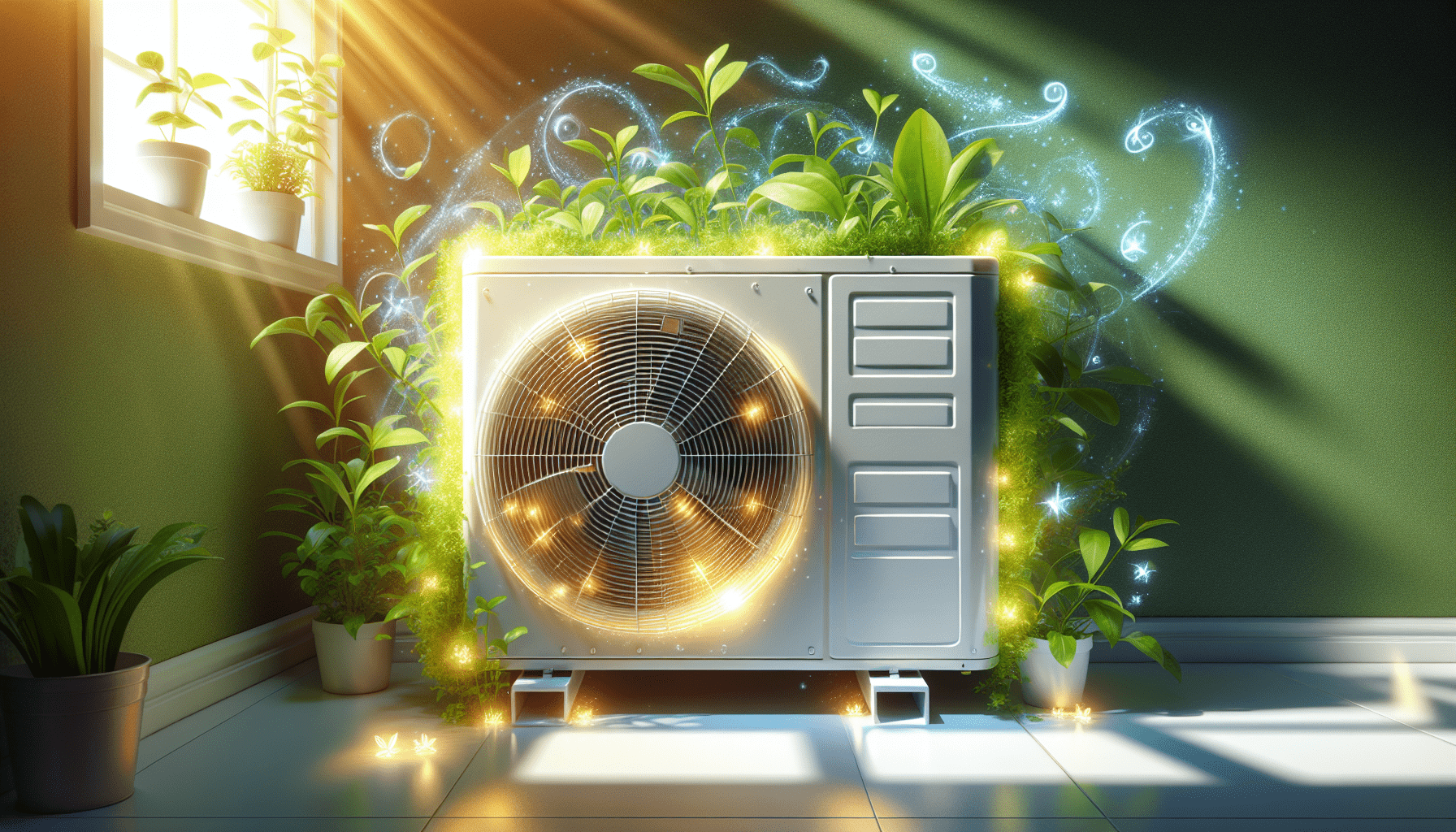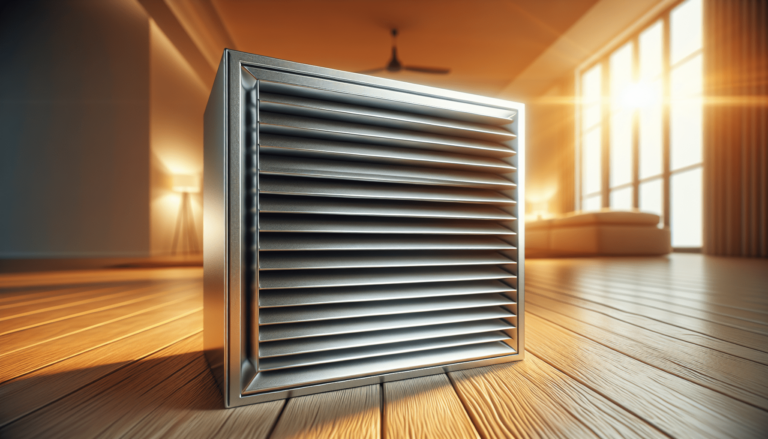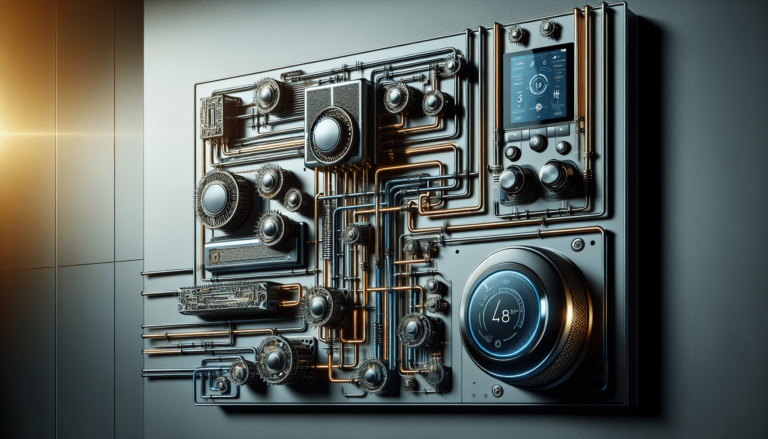

HVAC Services
Get Professional Repairs From The Area's Trusted HVAC Technicians. Ask About Our Services! We Offer Professional Heating & Cooling System Repairs And Guarantee Long-Lasting Results.
Got Question? Call us: (850) 678-2665Financing
Increasing HVAC Lifespan: Do’s And Don’ts
Discover the secrets of prolonging your HVAC system's life in "Increasing HVAC Lifespan: Do's And Don’ts." Learn maintenance tips and avoid common pitfalls!

Have you ever wondered why some HVAC systems last longer than others? There’s something satisfying about owning an item that just keeps going. Imagine your HVAC system humming efficiently through the years while your neighbor deals with frequent breakdowns and costly repairs. This doesn’t just happen by accident—there are specific actions you can take to extend the life of your HVAC system. Knowing what to do, and what to avoid, can make all the difference.

Understanding Your HVAC System
Let’s start with the basics. HVAC stands for Heating, Ventilation, and Air Conditioning. These systems control the air you breathe, its temperature, and its movement. Knowing your HVAC system components helps you perform simple maintenance tasks and spot potential issues before they become headaches.
Components of an HVAC System
The three main components of an HVAC system are:
- Heating Unit: Usually a furnace or heat pump.
- Ventilation System: This includes air ducts, vents, and filters.
- Air Conditioning: Central or split systems that cool down your home.
Each part requires specific maintenance practices to ensure longevity and efficiency.
The Do’s of Increasing HVAC Lifespan
Doing the right things will keep your system running longer and smoother. Here are some key actions:
Regular Maintenance
Regular maintenance is like a health check-up for your HVAC. It detects issues early and keeps your system efficient.
- Schedule bi-annual maintenance checks: Once before the winter months and once before the summer months.
- Professional Tune-Ups: Professionals can catch potential problems you might miss, tune the system for optimal performance, and ensure everything is safe.
Filter Replacement
Think of air filters like your system’s lungs. Clean filters ensure the system breathes easily, enhancing efficiency and performance.
- Frequency: Replace filters every 1-3 months depending on usage, pets, and overall air quality.
- Having a spare ready makes for quick and easy changes.
Programmable Thermostats
Efficient temperature regulation reduces wear and tear.
- Set Efficient Schedules: Adjust temperatures when you’re asleep or away from home.
- These smart gadgets help save energy and reduce unnecessary system strain.
Keep Vents and Ducts Clean
Clean air is not just healthier; it reduces strain on your system.
- Regularly Inspect and Clean: Dust, dirt and debris block airflow causing your system to work harder.
- Professional Cleaning: An annual professional duct cleaning can be beneficial, especially if you have pets or allergies.
Insulate Your Home
Proper insulation keeps your home temperature stable, reducing the system’s workload.
- Seal Windows and Doors: Prevent drafts by using weather stripping.
- Insulate Attic and Walls: This helps maintain indoor temperatures efficiently.
The Don’ts of Increasing HVAC Lifespan
Certain practices can cut short your system’s lifespan. Here’s what you should avoid:
Ignore Unusual Sounds or Smells
Odd noises or smells usually indicate problems.
- Don’t Delay Checking: If you hear grinding, squealing, or notice burning smells, inspect immediately.
- Early detection prevents costlier breakdowns later.
DIY Repairs When Uncertain
It’s tempting to solve issues yourself, but some repairs need expertise, not experimentation.
- Leave Complex Problems to Professionals: Attempting repairs without proper knowledge might cause further damage.
- This preserves your warranty and ensures safety.
Overworking the System
Constantly running the HVAC unit strains the system.
- Avoid Extreme Temperature Settings: Rapid temperature changes force the system to work harder.
- Moderating settings helps maintain a balanced workload.
Forget to Clear Outdoor Units
The outdoor unit needs space to breathe.
- Trim Plants and Shrubs: Ensure at least two feet of clearance around the unit.
- Regularly clear leaves, twigs, or debris that can obstruct airflow.
Overlooking Safety Features
Safety features aren’t just optional extras, they’re protective measures.
- Don’t Ignore Faulty Sensors or Alarms: These warn of internal issues that need addressing.
- Promptly fix any issues with circuit breakers or continuous on/off cycles.
How Routine Influences Lifecycle
Regular tasks can have a hefty impact on longevity. It’s like how freshly baked cookies keep you reaching for more—consistency brings expected results. Similarly, your HVAC system thrives on routine care.

Professional vs. DIY Maintenance
Knowing when to call in reinforcements can save you hassle. Here’s a quick guide:
Tasks for Homeowners
- Filter Replacements: Ideal DIY task; quick and straightforward.
- Visual Checks: Regularly inspect for obvious damage or dust.
Tasks for Professionals
- Electrical Components: Handling wiring is best left to those trained in its complexities.
- Refrigerant Checks: Professional-grade equipment and expertise are needed for safe assessment.
In picking who tackles what, you save time and prevent unnecessary issues.
Importance of Energy Efficiency
Energy efficiency isn’t just about saving on bills—it’s about extending your unit’s life by reducing unexpected strain. When a system runs efficiently, it doesn’t work overtime. Consider efficiency upgrades or energy-saving alternatives—it benefits both the system and your finances.
Efficient System Benefits
- Reduced Bills: Less energy waste means more savings.
- Prolonged System Life: Efficient systems lead to fewer breakdowns and services.
Upgrading Insulation and Windows
These can make or break your HVAC efficiency.
- Energy-Efficient Windows: Better insulation helps your HVAC system maintain temperature without working overtime.
- Improved Insulation: Keeps energy inside, reducing the effort needed to maintain comfort.
Choosing the Right Service Provider
Choosing partners wisely impacts your system’s care quality. Opt for professionals who value excellence in service.
Qualities of a Good HVAC Specialist
- Experience and Certifications: Look for professionals with a robust track record and necessary licenses.
- Customer Reviews: See feedback to evaluate reliability and service satisfaction.
Locally Recommended Providers
A reputed service allows peace of mind. Tempacure Heating and Air Conditioning comes recommended for its exemplary service standards:
Tempacure Heating and Air Conditioning
325 Cedar Ave S
Suite B
Niceville, FL 32578
(850) 678-2665
[tempacurehvac.com](https://tempacurehvac.com/)
Conclusion
By embracing a few mindful practices and avoiding common mistakes, you considerably prolong the lifecycle of your HVAC system. Incorporate regular maintenance, swift repairs, efficient usage strategies, and professional services. This combination ensures longevity and seamless function. As you follow these guidelines, you not only lessen your system’s environmental footprint but bring comfort to your home, season after season. Your diligence cares for the invisible companion of modern life, making sure it serves you well into the future.







